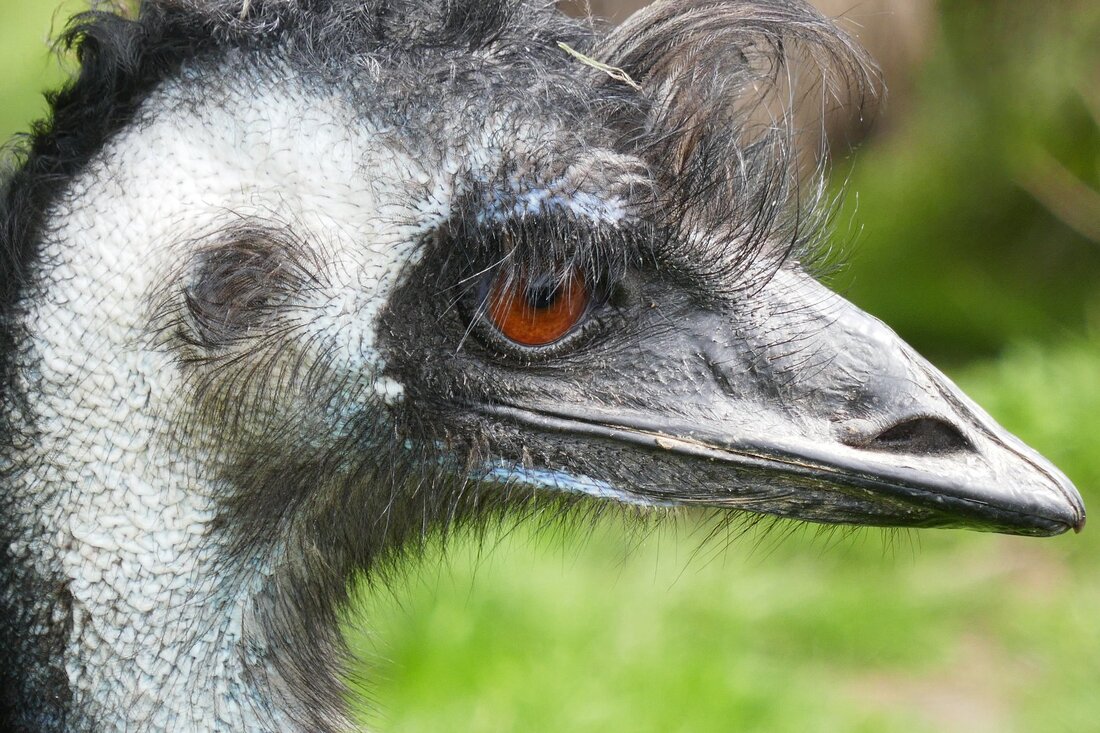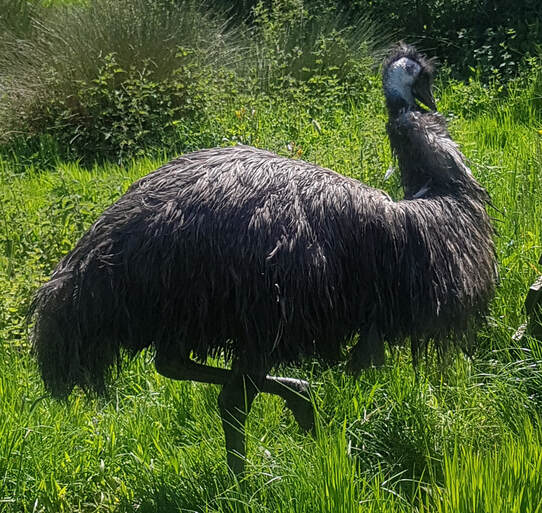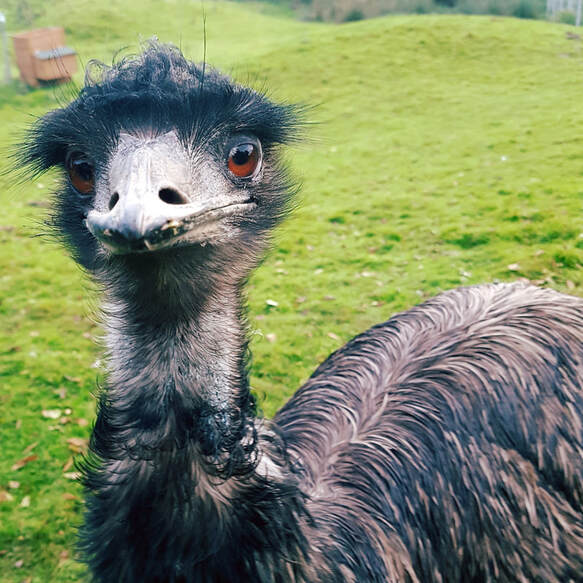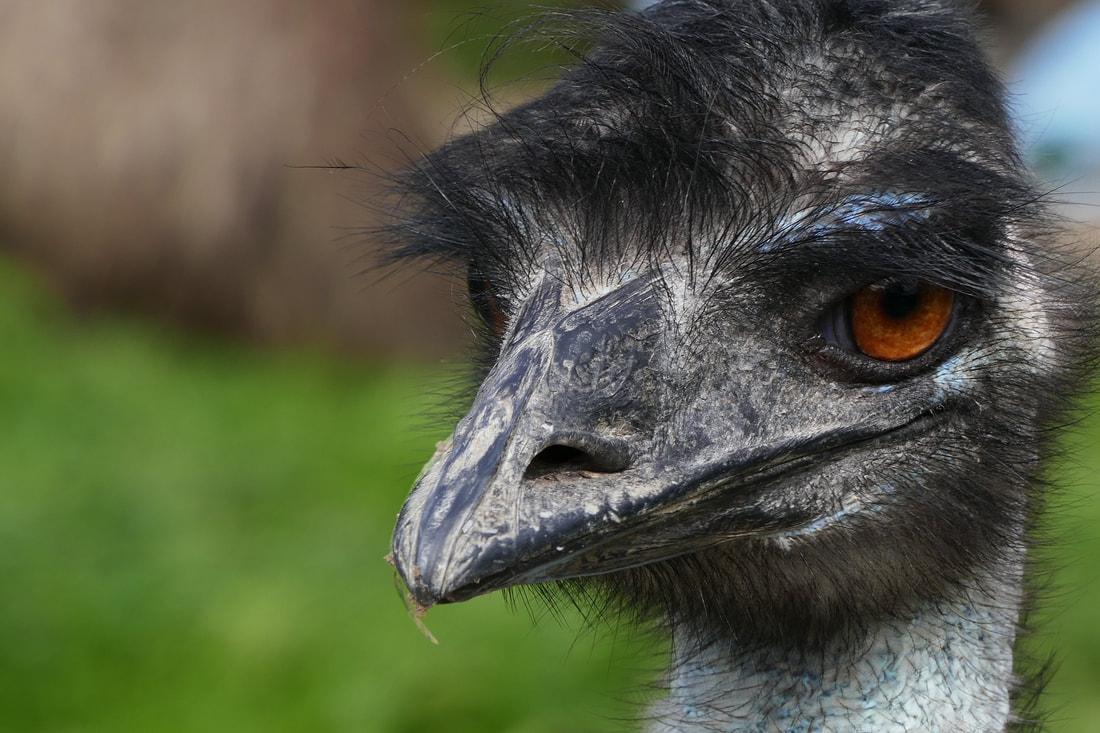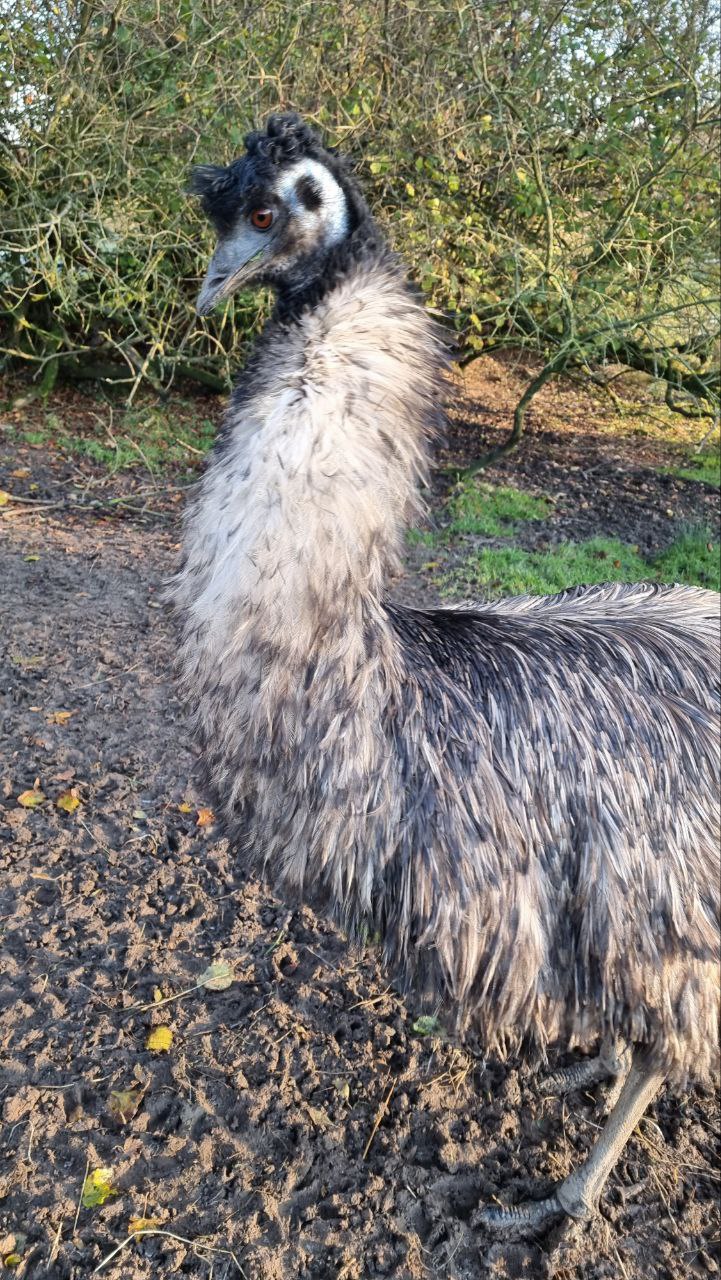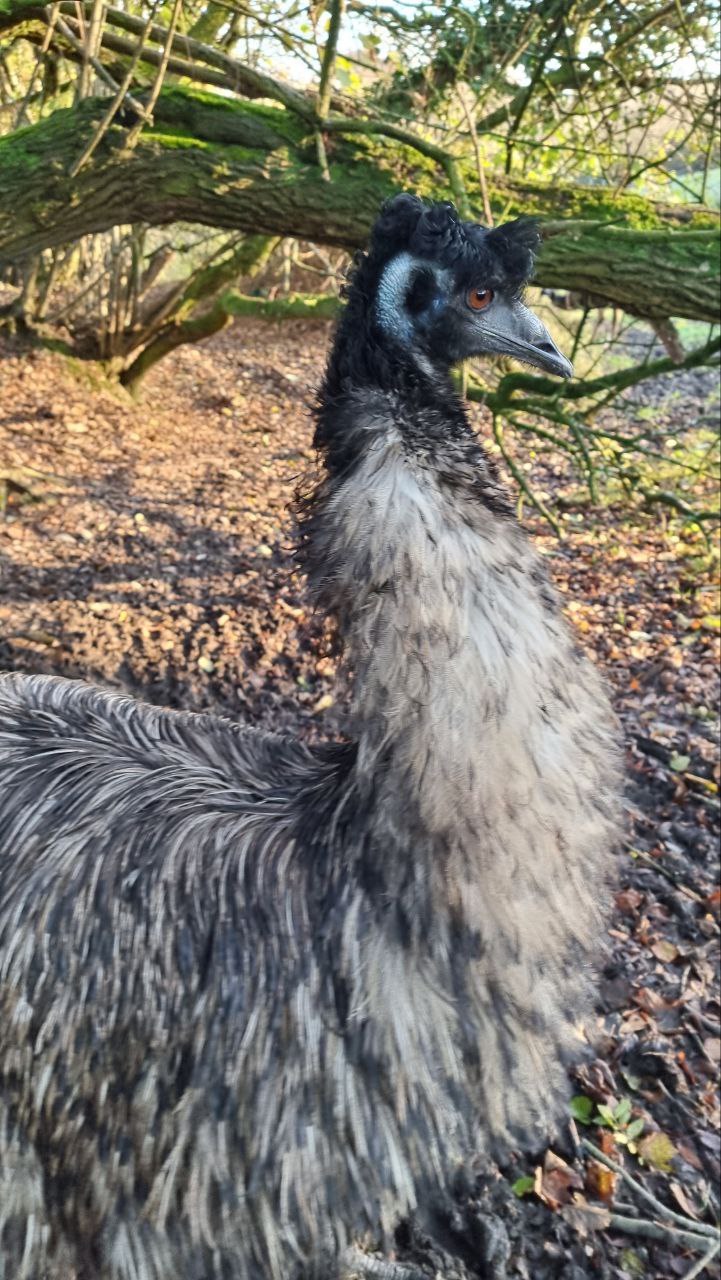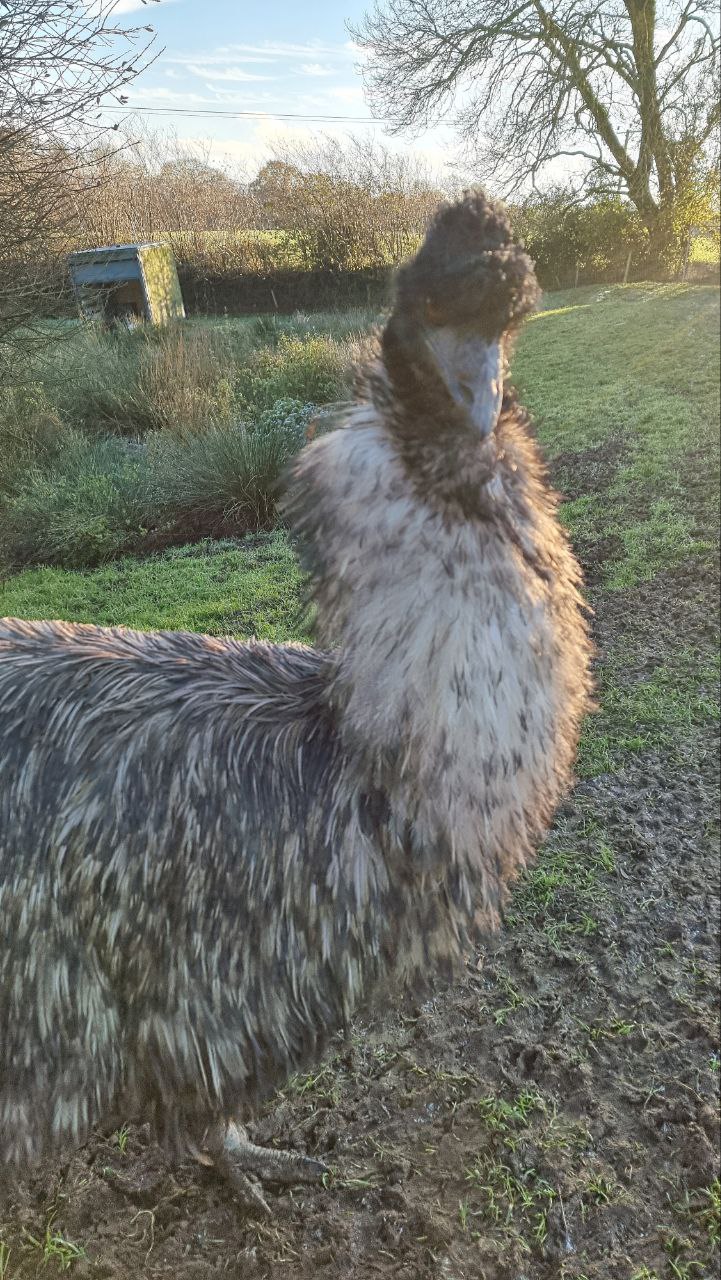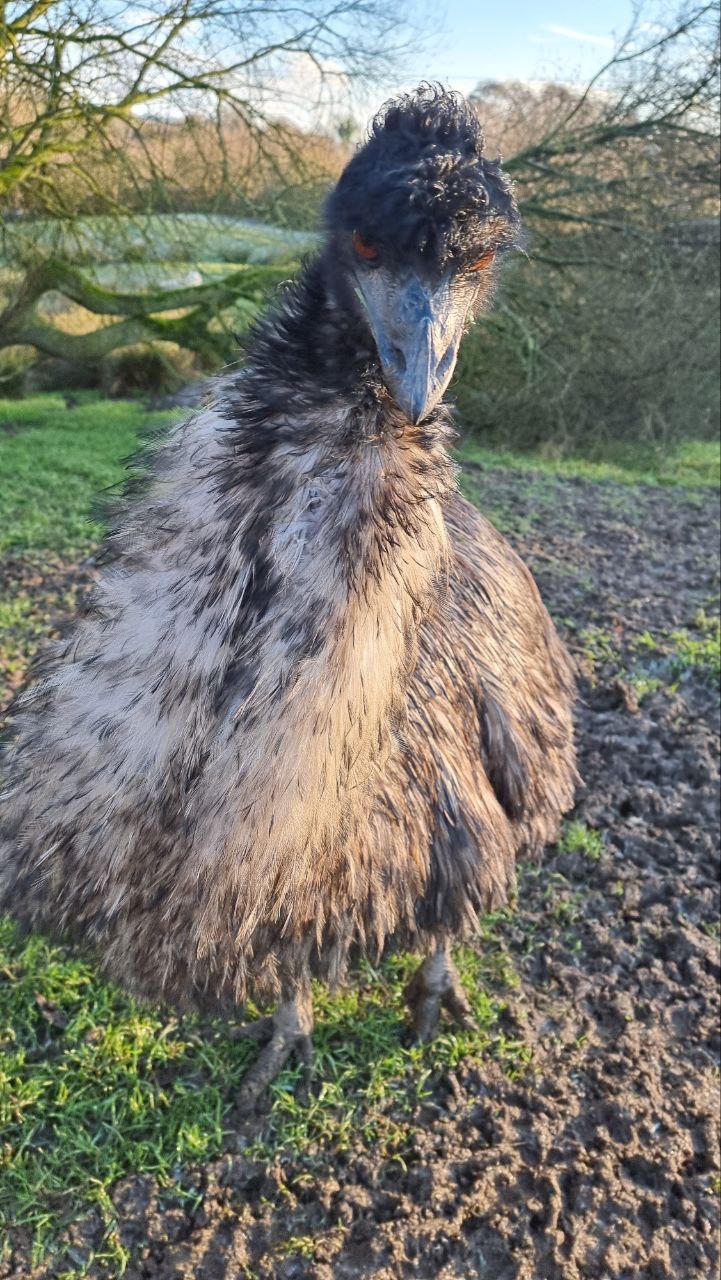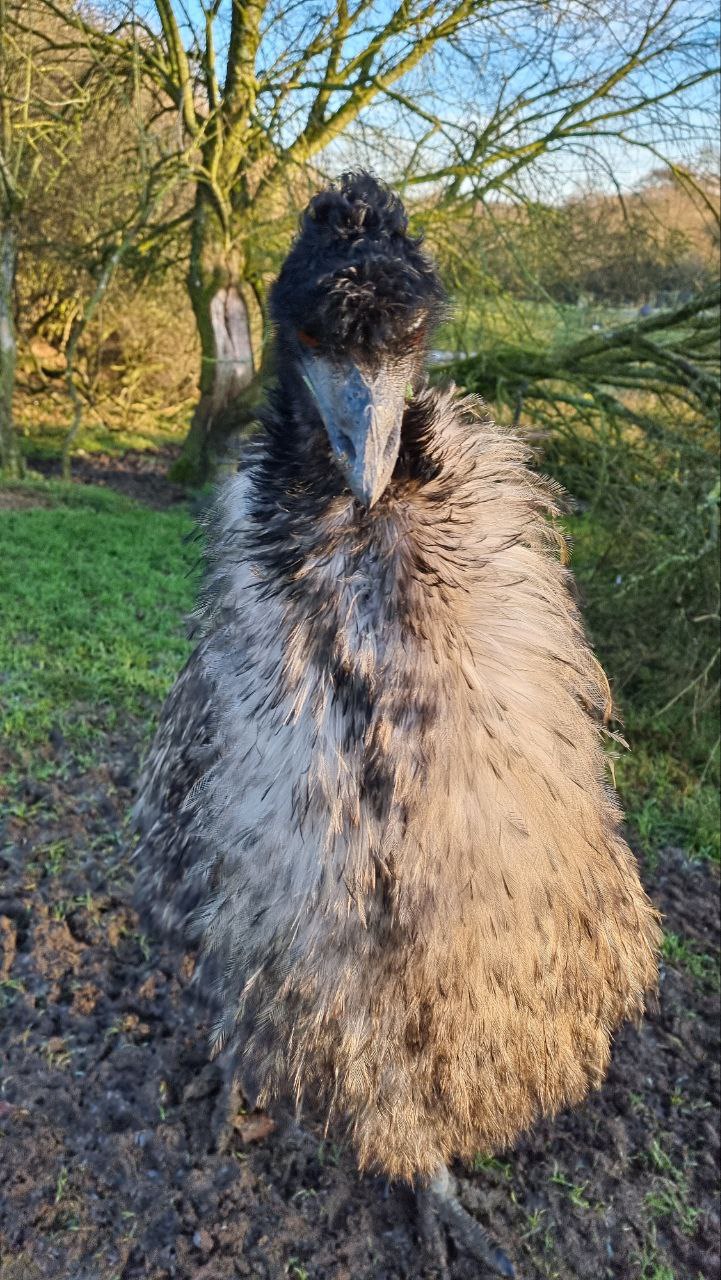Emu Behaviour & Breeding BehaviourEmu Behavior and Breeding Patterns: An Insightful Overview
The behavioural patterns and breeding rituals of emus are as diverse as they are fascinating. Each emu possesses unique personality traits and characteristics, reflecting their naturally inquisitive, friendly, and social demeanour. Seasonal Variations in Emu Behavior Throughout the year, emus exhibit varying behaviours. While they are inherently social animals, emus tend to adopt a more solitary lifestyle in the wild. This isolation is primarily observed except in circumstances where they congregate around abundant food and water sources. Breeding Season Dynamics The breeding season marks a significant shift in their behavior. During this period, male emus demonstrate increased attention towards females, often starting a couple of months before the laying of eggs. Vocalizations and Maturity As emus approach sexual maturity, typically between 18 to 24 months, noticeable differences emerge in their vocalizations. Female emus produce a distinctive, deep, drumming sound. In contrast, male emus emit a grunt akin to that of a pig. Interestingly, young females may also grunt before they develop their characteristic drumming sound. Both sexes utilize hissing as a form of warning, during conflicts, or when defending themselves. Drumming: A Multifaceted Communication Female emus use drumming for various reasons. It can serve as a deterrent to other females, keeping them away from her chosen male, or as a call to her mate. The physical display accompanying this drumming is equally significant. Females may adopt a regal, alert stance, often holding their head back and down, puffing out their chests, and strutting to showcase their presence. This display is not exclusive to females; males may also exhibit similar behavior, particularly when attempting to attract a mate. Additionally, this stance can serve as a warning signal, and in threatening situations, emus might resort to a powerful kick as a defensive measure. |
This video shows a male emu on a nest making a purring, humming sound. In this instance he is asking his keeper to not take his eggs. |
Emu temperament can vary from bird to bird. The females tend to be slightly more anxious, more so with each other. The males are generally very docile, most will get on with each other, but not always! Sometimes males really don't like each other and may chase other males away. But given enough space, with places to hide, they'll not bother each other or fight, but rather just stay out of each other's way.
Through the spring and summer months all emu tend to get on and will hang out in a mob together. Through late autumn and early winter, which is coming up and into breeding season, the fun can start. Emu that perhaps seemed to be coexisting well together may suddenly change and squabble over partners. Some females may take on more than one male, though it is unlikely for one male to have two females. During breeding season they may all go off in small groups or pairs or trios.
Through the spring and summer months all emu tend to get on and will hang out in a mob together. Through late autumn and early winter, which is coming up and into breeding season, the fun can start. Emu that perhaps seemed to be coexisting well together may suddenly change and squabble over partners. Some females may take on more than one male, though it is unlikely for one male to have two females. During breeding season they may all go off in small groups or pairs or trios.
|
It is not always easy to pair of emu by simply by putting two together, especially if there are other emu around, because they may not automatically like one another. One emu may be interested in the partner you give it, but the uninterested emu may have ideas elsewhere. There are more details about emu breeding behaviour at the bottom of this page. In the wild, emu do not mate for life. A female will lay enough eggs for one nest and go in search of another male. A male will sit on the eggs in a nest he has made in a clearing on the ground, beside a hedge or under a tree, and then raise the young for between 5 and 18 months. In captivity males seem to return to their favourite females once they are up off the nest, if they have not managed to hatch or the chicks are taken, especially if the female is one they have grown up with. Emu sleep when the sun goes down over the horizon. Resting on their hocks on the floor, they will curl their necks back with their heads facing forwards and may get up every couple of hours in the night for a stretch before settling back down again. They take naps in the day too, always keeping alert to any nearby sounds that might signify danger. |
Emu can withstand extremes of weather, from really hot to cold and snowy, although they tend to take shelter in high winds, especially when it is wet too.
An emu that looks sullen, is not eating, has runny stools, is losing weight or feathers, or has fluids coming from its nostrils, mouth or eyes will need checking for illness. If an emu is on its own looking unhappy and off its food or water, they may be either lonely or stressed by other emu. In captivity emu thrive on the company of other emu and can become unhappy on their own, even with lots of human interaction.
Around spring / early summer you may find emu feathers shed everywhere; this happens during moulting season. As the feathers loosen, some emu will appreciate water to wallow in, particularly muddy puddles; this seems to help the looser feathers fall out, although it does make the emu look rather shabby for a while. There is no need to add vitamins if they have the correct diet, but the emu may benefit from the addition of a supplement such as Rooster Booster whilst moulting.
Some people may say that emu make good guardian animals, but not necessarily, they tend to like to chase and stamp on small scuttling creatures such as shrews, rats, mice and weasels. As for keeping foxes away, emu are not to be relied upon as guardian animals, although they have been known to kill coyote and foxes. They tend to chase out of fun rather than protection.
An emu that looks sullen, is not eating, has runny stools, is losing weight or feathers, or has fluids coming from its nostrils, mouth or eyes will need checking for illness. If an emu is on its own looking unhappy and off its food or water, they may be either lonely or stressed by other emu. In captivity emu thrive on the company of other emu and can become unhappy on their own, even with lots of human interaction.
Around spring / early summer you may find emu feathers shed everywhere; this happens during moulting season. As the feathers loosen, some emu will appreciate water to wallow in, particularly muddy puddles; this seems to help the looser feathers fall out, although it does make the emu look rather shabby for a while. There is no need to add vitamins if they have the correct diet, but the emu may benefit from the addition of a supplement such as Rooster Booster whilst moulting.
Some people may say that emu make good guardian animals, but not necessarily, they tend to like to chase and stamp on small scuttling creatures such as shrews, rats, mice and weasels. As for keeping foxes away, emu are not to be relied upon as guardian animals, although they have been known to kill coyote and foxes. They tend to chase out of fun rather than protection.
|
Emu will pace a fence line in captivity, a perimeter where they are likely to encounter humans or activity. Emu graze throughout the day on their feed, leaves, plants, bugs, grass and anything they can find. They will find interest in anything, and always want to investigate and peck something new to them. They are extremely curious and inquisitive. |
Breeding behaviour
It is not unusual at all for emu who have previously got on all year and who seem like the best of friends to suddenly turn and chase off one or more emu. It happens with both males and females. Put simply, when it comes to breeding season and the time when you would think they would become more than friends, they simply may not like each other as partners. Hormones bring about all kinds of strange behaviours in emu. You may find that you have bought a lovely pair or trio of emu, and then suddenly the male decides he doesn't like his female, or the female doesn't like the male. In this case there is nothing that you can do to make them like each other, but it may be different in following breeding seasons. The chances are that once the hormones have settled they will be fine again. In a large enough space, of around an acre or two, with trees and places to get away from each other, they will simply avoid each other for this short period. But if kept in small spaces they may need separating to avoid injury. This is one of the reasons that we recommend at least an acre for keeping emu. You may also find that your emu prefer you to the other emu, this is not unusual and it is nothing to be scared of. These pairing behaviours of emu are more common in younger emu who are still settling in to their hormonal feelings.
Late autumn you will see behaviour change in both males and females, as mentioned above the females can become a bit more feisty and protective towards their males, but males may show some strange behaviours around this time. Coming into breeding season males may go into autopilot, whether with a female or not. If they have a female then these instincts may be stronger. For example, males may sit a lot more with their head slightly twitching, they may look tired around the eyes, as if they just want to drop off to sleep, and they may be seen gathering sticks and piling them up in readiness for the eggs. They may stand still with their heads drooping low.
Some males, whether they have a female or not, may take a shine to us humans, following us around, strutting around and circling us with their neck feathers puffed out, putting on a lovely display of their handsomeness for us. This is quite common, and we are not really sure why they can seem amorous around humans, they will do it even when they have a female, although it is a more rare sight when they are partnered.
Females may show a similar amorous appreciation for their humans in breeding season. They may follow you around, and when you go to stroke them may drop to their hocks, stretch their necks out, and whilst lifting their tail feathers, release a pheromone. It is nearly always lone females that do this, although partnered females sometimes do this too. It is also more common in younger females.
As we get further into breeding season your emu may want to spend less time with you as they may be more preoccupied with other emu, and feeling as if they want to just take themselves off to a quiet place for the duration. Don't be saddened if your once loving friendly emu has suddenly seemed to turn their back on you, it doesn't last. Towards the end of winter and into spring they will be back to normal.
Late autumn you will see behaviour change in both males and females, as mentioned above the females can become a bit more feisty and protective towards their males, but males may show some strange behaviours around this time. Coming into breeding season males may go into autopilot, whether with a female or not. If they have a female then these instincts may be stronger. For example, males may sit a lot more with their head slightly twitching, they may look tired around the eyes, as if they just want to drop off to sleep, and they may be seen gathering sticks and piling them up in readiness for the eggs. They may stand still with their heads drooping low.
Some males, whether they have a female or not, may take a shine to us humans, following us around, strutting around and circling us with their neck feathers puffed out, putting on a lovely display of their handsomeness for us. This is quite common, and we are not really sure why they can seem amorous around humans, they will do it even when they have a female, although it is a more rare sight when they are partnered.
Females may show a similar amorous appreciation for their humans in breeding season. They may follow you around, and when you go to stroke them may drop to their hocks, stretch their necks out, and whilst lifting their tail feathers, release a pheromone. It is nearly always lone females that do this, although partnered females sometimes do this too. It is also more common in younger females.
As we get further into breeding season your emu may want to spend less time with you as they may be more preoccupied with other emu, and feeling as if they want to just take themselves off to a quiet place for the duration. Don't be saddened if your once loving friendly emu has suddenly seemed to turn their back on you, it doesn't last. Towards the end of winter and into spring they will be back to normal.
This article provides a comprehensive understanding of the unique social and breeding behaviors of emus, highlighting the importance of proper space and care, especially during the breeding season. Understanding these aspects is crucial for anyone interested in keeping emus or studying their behaviors.
In the photos below Ernie can be seen 'displaying', puffing out his chest feathers and circling his keeper during breeding season.
If you would like to learn about emu behaviour whilst on the nest or raising chicks have a look at the
Raising Chicks On The Nest Page...
https://www.emu.services/raising-chicks-with-both-parents.html
Raising Chicks On The Nest Page...
https://www.emu.services/raising-chicks-with-both-parents.html
Emu Keepers and Breeders Community Worldwide on Facebook
